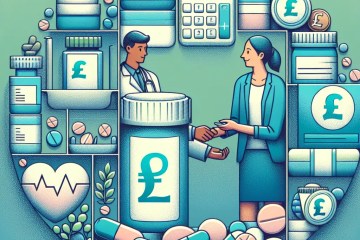Navigating Prescription Cost Help in 2025: What UK Patients Need to Know

Understanding Prescription Cost Help in the UK
As of 2025, navigating the costs of prescriptions can be a challenge for many across the UK. With varying prices and support schemes available, understanding your options is essential to managing healthcare expenses effectively. This blog post explores some practical ways to get help with prescription costs in the UK.
Eligibility for Free Prescriptions
In the UK, prescription charges are a standard part of the healthcare system, but there are several exemptions that can qualify you for free prescriptions. Here are key groups who are eligible:
- Age: If you are under 16 or over 60, your prescriptions are free.
- Medical Conditions: Certain medical conditions qualify for a Medical Exemption Certificate. Conditions such as diabetes, hypothyroidism, and epilepsy are included.
- Pregnancy: If you’re pregnant or have had a baby in the past 12 months, you are entitled to free prescriptions with a Maternity Exemption Certificate.
- Income: If you receive specific types of income support or benefits, such as Income Support or Jobseeker’s Allowance, or you hold a valid NHS tax credit exemption certificate or a valid HC2 certificate, you might also qualify for free prescriptions.
For more information on eligibility, visit the NHS Help with Health Costs page.
Prescription Prepayment Certificates (PPCs)
If you do not qualify for free prescriptions but need medication regularly, a Prescription Prepayment Certificate (PPC) can offer significant savings. A PPC covers all your prescriptions for a set period for a one-off payment, which can be more cost-effective than paying for each prescription separately:
- 3-month PPC: As of 2025, costs approximately £30.25.
- 12-month PPC: Costs about £108.10 and can be paid in instalments.
Considering that a single prescription charge is £9.35, a PPC could potentially save you a significant amount over the year. You can buy a PPC online by visiting the NHS Business Services Authority.
Financial Assistance Schemes
There are various schemes available to help individuals struggling with healthcare costs, including prescription charges:
- NHS Low Income Scheme: If your income is low, this scheme could help you pay for prescriptions, dental treatment, eye care, and other healthcare expenses. Depending on your circumstances, you may receive full help (HC2 certificate) or partial help (HC3 certificate).
For more details or to apply, check out the NHS Low Income Scheme page.
Ask Your Pharmacist
Pharmacists are often overlooked as a resource for financial guidance on medications. Some pharmacies offer generic medication options which can be significantly cheaper than branded ones. Always ask if a cheaper alternative is available that suits your medical needs.
Charities and Support Groups
Several charities provide support for people struggling with prescription costs. For instance, organizations like Turn2us can help navigate through various financial aid options available to you.
Conclusion
Managing healthcare expenses, particularly prescription costs, can be stressful. However, by exploring all the avenues mentioned above, you can find ways to manage or reduce the financial burden. Whether through exemptions, PPCs, financial assistance schemes, or even charitable support, help is available. It’s important to view all your options and seek the ones that best fit your circumstances.


















